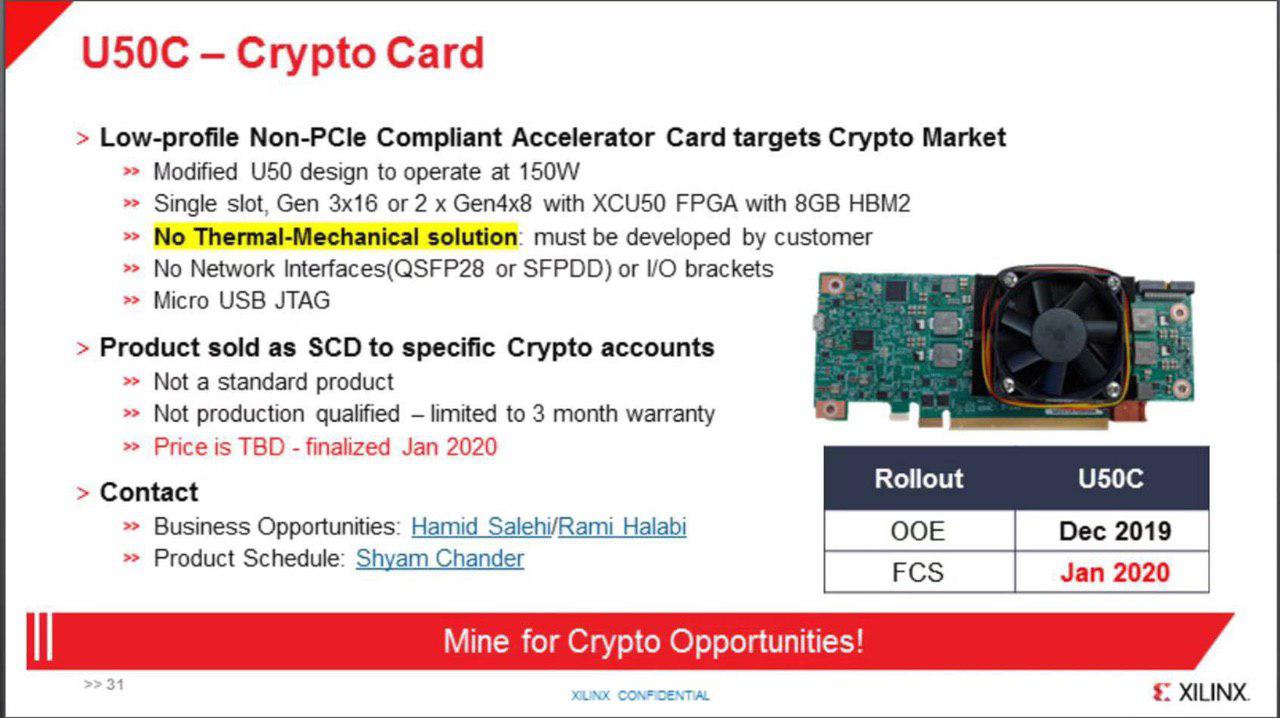FPGAs Threaten Smallcap Altcoins as Xilinx Enters Crypto Mining
Are proof-of-work altcoins in jeopardy?

Share this article
Xilinx, a Fortune 1000 semiconductor company specializing in FPGAs, is entering the crypto mining market, said sources. This poses a threat to coins with “vulnerable” mining algorithms such Ravencoin, Nervos, and others.
Xilinx is a semiconductor company with a market capitalization of over $24 billion. Recently, leaked communications from within the firm show that they are making moves into crypto mining with FPGAs (field-programmable gate arrays). This segment has historically been dominated by Nvidia and AMD GPUs.
Previously, the firm mainly served other hardware designers in this market, such as SQRL, which designs specialized FPGAs for cryptocurrency mining.
An FPGA is a type of chip that allows a miner to configure it to effectively mine different algorithms, and thus different coins. This capability may even allow FPGAs to withstand algorithm hardforks meant to thwart specialized hardware, such as those employed by Monero. ASICs (application-specific integrated circuits), meanwhile, are locked into mining on a single algorithm, like Bitcoin’s SHA256.
Crypto Briefing spoke with SQRL CEO David Stanfill. He said of FPGAs:
“In the hardware world outside of crypto mining ASICs, the growing event for the last year and a half has been the gradual replacement of GPU farms with new high-end FPGA based accelerators. Nothing like the small FPGAs that briefly existed in early Bitcoin days.”
Now, sources say that Xilinx is now building its own FPGAs geared toward large-scale mining farms. Stanfill claims Xilinx, a partner of theirs, copied these designs from SQRL.
“I believe our chips have been gaining in popularity in the crypto community. I don’t believe the U50 is targeted specifically at this market,” said a representative from Xilinx.
Meanwhile, leaked images of the device designed describe it as a “crypto card” and advertise that it is designed to “mine crypto.”

“Their new boards are capable of mining every coin and chain, almost always more power efficiently than GPUs,” Stanfill added.
These FPGAs pose a threat to smaller altcoins and less commonly used mining algorithms. Coins such as GRIN, Beam, Monero, and Ethereum are still primarily dominated by GPUs, said Kristy-Leigh Minehan, the former CTO of Core Scientific and a 10-year mining veteran. She added:
“FPGAs right now are mostly concentrated on low liquidity coins with vulnerable or weak algorithms — Keccak variants, such as 0x, RVN (using x16r), CKB (which uses Eaglesong) and other coins. Hardware distribution is still mostly locked into China with companies such as HashAltcoin (Blackminer) and their F1 product.”
Share this article


